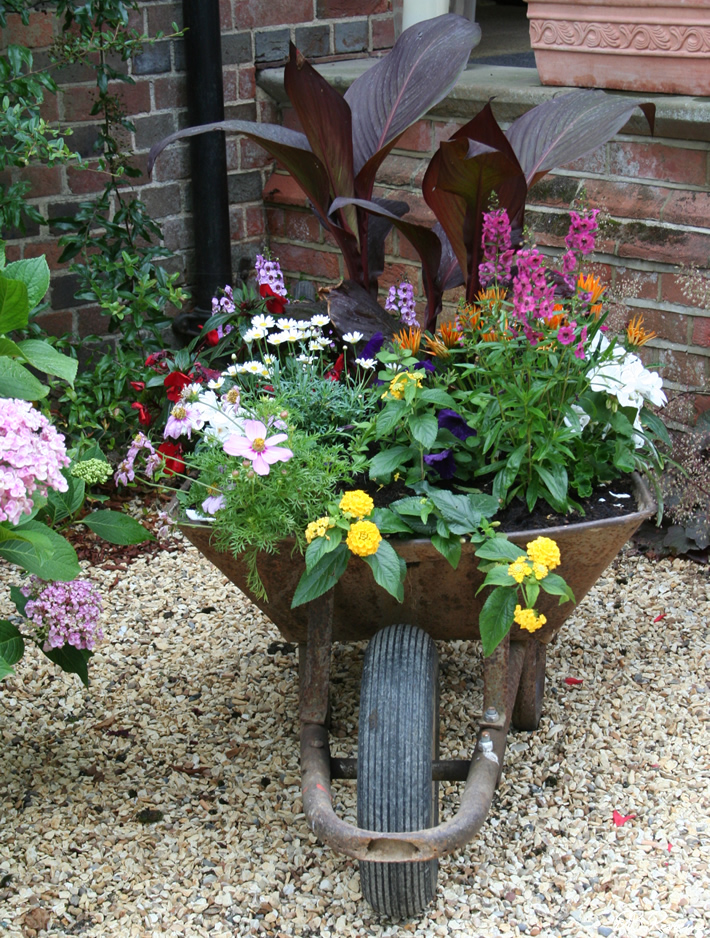Part and parcel of being a parent is exposing your kids to all kinds of challenges and ideas. With a great adventure playground on your doo...

Part and parcel of being a parent is exposing your kids to all kinds of challenges and ideas. With a great adventure playground on your doorstep, why not introduce your kids to the garden and everything it can offer?
Finding stuff to do with the children that you can all do together as a family can be difficult. But spending time in the garden has many benefits so how can you encourage children to get their hands dirty and take up gardening?
#1 Start them young
Whether you are green-fingered or not, spending time in the garden exploring all it has to offer is something you can start to do with your children from an early age.The thing with growing plants is it takes patience, as much as it does a little skill, care and attention. And patience isn’t something that children have in abundance when they are young!
So, how do you get around the disappoint of planting a seed and it not being six foot tall the next day?
#2 Mix the planting
The answer to keeping children interested in gardening is to choose a mix of plants. Established shrubs, although more expensive, can deliver results quickly, for example;- Have fun in a fruit cage with established fruit shrubs and grow your own blackberries, red currants and more. As well as eating them straight from the plant, you can also teach your children how to cook with them. As well as desserts, you can teach them how to make jam.
- Vegetables are also plants that give great satisfaction in the shape of a harvest. Most vegetables are easy to grow – they need to be well-watered (but not over-watered) and fed from time to time. Again, you can harvest and teach them how to cook with them. Is there anything more satisfying?
#3 Child-friendly gardening tools
Gardening tools can be unwieldy even for big, strong adults so imagine the problems a smaller pair of hands will have with the garden fork or trowel.
And frankly, having a few pieces of new kit to play with can make gardening even more exciting for your kids;
- Propagators and sowing tubs – whether you are sowing in a cold frame, greenhouse or polytunnel, smaller propagators and tubs are ideal for small children to handle.
- A set of mini-gardening tools – are perfect accessories for smaller hands. And you will find you will use them time and again too.
- Easy-to-lift watering cans – encourage your children to be responsible for watering and feeding their plants with their own small watering can. A small funnel also means your kids are less likely to be over-generous with water, effectively drowning their plants.
#4 Get them involved in the entire process
As a parent, it is easy to do the messy bits and the tough bits on behalf of your children but this means they miss out on important skills.
It means getting their hands dirty, something that many children miss out on. In our efforts to keep germs at bay, we can create too-sterile an environment that has the opposite effect.
But it means teaching children important skills such as handwashing, using a good soap, hot water. It means washing hands really well, getting the much out from under nails and in-between fingers.
Use a mix of plants too and talk about;
- How to sow seeds and how this varies depending on how the plant likes to grow
- What a plant needs to grow big and strong
- Why some chemicals in the garden are not helpful to all birds and bugs, and the natural alternatives
- How to care for a plant including how some plants like lots of water but others don’t
- How plants are fed, whether that is through a shop-bought product or organic material, like manure
#5 Use a gardening calendar
Just as you get organised in the house, teach young gardeners the skill of being organised in the garden.
Use a gardening app, for example, to prompt when seeds can be sown, veggies pulled and fruits picked. Keep a diary so that you can look back at what you did on a certain day and what the garden looked like.
Keep an online scrapbook, with photos uploaded from your phone. This is a great way to stay in touch with how quickly the garden changes when the main growing season is upon us.
How will you get your children involved?
With twenty years of supplying polytunnels to families, gardeners, schools and business, First Tunnels have long understood the fun to be had in a fruit cage.
Collaborative post
No comments